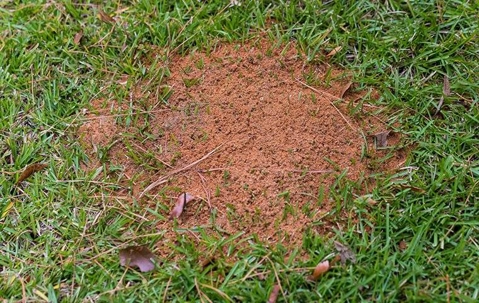Fire ants are a species of ants famous for the itchy and painful stings and bites that result if you disturb their mound. They eat pests like ticks and feed on cockroach eggs, chinch bugs, oily nuts or meat, seeds, young tree barks, rotting animals, and flea larvae.
Whenever you need pest control in Richmond, Go-Forth Home Services is your best bet if you want quality fire ant control services. We have been helping locals eliminate different kinds of pests for decades. We believe that your home is your fortress and you deserve to be relaxed and comfortable whenever you're there. This guide will give you all the fire ant information that you need to know in order to deal with these pests.
Are These Fire Ants?
In the U.S., there are native fire ants, red imported fire ants (Solenopsis invicta), and black imported fire ants (Solenopsis richteri), all of which can make it nearly impossible to enjoy outdoor events.
Even though there are many fire ant species, the red imported fire ant (or RIFA) is the most common and dangerous in the U.S. The worker and the queen ants of this species have a red or brownish head and thorax, while the hindmost part is black. Fire ants also have a stinger at the rear segment of their bodies that injects venom and mandibles for biting.
These ants create mounds with a height of as much as 16 inches and a diameter of up to two feet, although many mounds are smaller. Their mounds have a fluffy appearance and don’t have an entry point, since they can make many tunnels underground and access the mound through them.
What To Do If A Fire Ant Bites You
When a fire ant in Richmond stings, you might feel extreme pain and itching. Sometimes, you might be allergic to the fire ant venom, which can cause anaphylaxis, which can be fatal. Anaphylaxis means you will experience shortness of breath, dizziness, fainting, and low blood pressure. When fire ants sting you, you should do the following:
- Brush the ants away from your body.
- Wash the stung area using cold water and soap.
- Elevate the affected area to avoid inflammation.
- Take an over-the-counter antihistamine.
- Apply hydrocortisone cream on the stung area twice daily to minimize the rash and itchiness.
- Use ice packs if you need to in order to help eliminate inflammation and pain.
- If you have a severe anaphylactic reaction, you will need to seek immediate medical attention.
When a fire ant stings you, these are the first aid treatments that can help you reduce the discomfort you are experiencing. The best way to avoid fire ant stings, though, is to avoid fire ants entirely.
Five Fire Ant Prevention Tips
You can take certain measures to prevent fire ant stings. These include:
- Apply insect repellent to your clothes and uncovered skin.
- Be cautious whenever you lift an object like a log, since these insects might live under it.
- Contact pest control experts if you see colonies or ants on your property.
- Avoid disturbing any mounds, colonies, or nests.
- Ensure you wear shoes whenever you are stepping outside your house.
Preventing a fire ant infestation is doable if you take the time to apply these tips. Since fire ants can sting you and even land you in a hospital, it is really important to prevent them from settling in your yard and accessing your home.
How to Get Rid Of Fire Ants For Good
When these ants invade your home and build an ugly fire ant mound in your yard, they can endanger you and your family, among other problems. To keep everyone in your home safe, professional ant control services are the best way to rid your property of these dangerous pests.
At Go-Forth Home Services, we will treat your home like our own and respond promptly to your distress call. With our vast experience in this industry, we can easily tell the best places to look for fire ant nests and eliminate them. We will use effective and safe methods to get rid of these insects. Call us today for more information or a quote.

